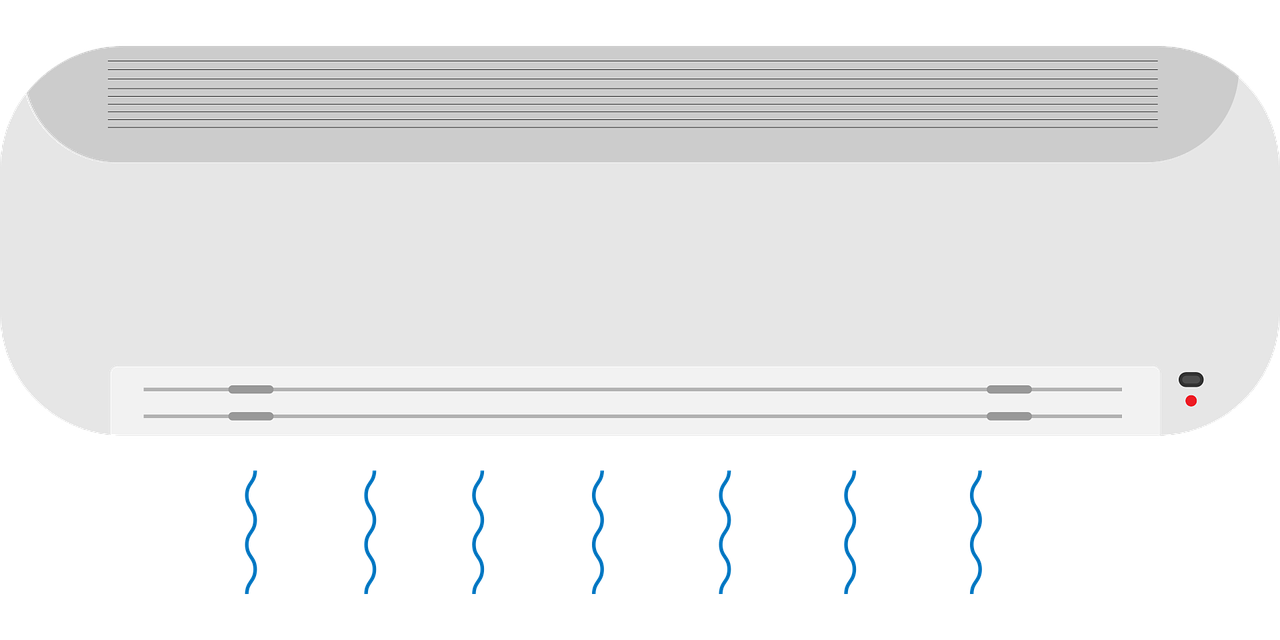Recent heat waves have prompted more people to look into proper cooling solutions for their homes. While a fan can work well for moderate heat and a single person, things often get more complicated in prolonged heat waves, especially in multiple-person households.
Air conditioners are a popular solution to this problem. And while some people see them as glorified fans, there is quite a difference between the two. Let’s look at how a typical modern home air conditioner works and what advantages it brings to the table compared to more traditional cooling approaches.
Air Conditioner vs. Fan: What’s the Difference?
At the core, both an air conditioner and a fan have something in common in dealing with heat: they promote evaporative cooling by shifting air. However, a fan works by simply blowing air in a certain direction (ideally aimed at a person), relying on body sweat to remove heat and shift it elsewhere.
On the other hand, an air conditioner is a more complicated contraption. Cooling liquid is run continuously inside the unit, while powerful fans ensure that the coil is constantly cooled down. Heat is transferred via this coil to a condenser, which releases it in another area, ideally outside your home.
That’s why an air conditioner consists of two units, one inside the home and one placed somewhere outside. A fan just shifts air around inside the same room—but the hot air doesn’t just magically disappear. It just gets temporarily dissipated. On the contrary, an air conditioner actively removes heat from the room and shifts it elsewhere.
Why Does Air Conditioning Use So Much Power?
A fan typically uses very little power, at least compared to an air conditioner. That’s because the complex mechanism of an AC unit requires a lot of power to work. The pump, compressor, and condenser running continuously put quite the strain on the power supply—and your electricity bill.
There are ways to minimize how much power your air conditioner uses, but you’ll ultimately have to get used to the fact that it’s going to be expensive to run regularly.
That’s why some countries around the world heavily regulate the use of air conditioners. It’s practically impossible to get a home unit without significant expense in some parts of the world, and that seems to be getting more common.
Layout Considerations
Air conditioners also rely on a suitable home layout to work correctly. They can only cover an area up to a certain size, placing a lot of importance on where the unit is located and how your rooms are connected. It’s not rare for homeowners to adjust their layouts when installing AC to accommodate that.
That’s also why air conditioning is not a suitable solution for everyone. For certain homes, it can be prohibitively expensive when you consider the number and class of units that you will need to cover the full area.
What Is a Portable Air Conditioner?
Portable air conditioners have been getting more and more popular over the last decade, partly because of the legislative reasons we mentioned above and partly due to the ease of setting one up and using it in the long term. They bring many advantages to the table without sacrificing much, other than some aesthetics.
As we mentioned above, heat that’s extracted from your home needs to go somewhere, so an air conditioner can’t work as an isolated unit on its own. Instead, it needs a connection to the outside. Portable units typically accomplish that through a hose or a pipe that runs from the AC unit to the outside.
Typically, you’ll run that hose through a window that’s cracked open, and the company provides you with an insulating sleeve to fill the gap. It’s important that you leave as little open space as possible where the hose goes through.
Even a little extra air coming in from the outside can significantly degrade the performance of an air conditioner. It can also make it draw a lot more power.
Air Conditioning: Impact on the Environment
A side effect of using air conditioning that some people don’t put enough thought into is how they impact the environment. Heavy power consumption is already something that should alarm most people—but it goes beyond that. An air conditioning unit uses a refrigerating agent to accomplish its effect.
This agent often releases harmful gases into the environment, and ACs have been linked to ozone layer damage in the past. That’s part of the reason why their use is so heavily regulated in some parts of the world. It’s not just about putting a strain on the energy infrastructure, but cooling your house with an air conditioner contributes to global warming in the long run.
Unfortunately, that’s a vicious cycle—the more we use air conditioners, the more we find ourselves resorting to them as the earth heats up. That’s why using an AC unit for personal reasons is something that should be done with a lot of careful thought and consideration.
If possible, look into alternatives that can work in your local area that don’t damage the environment that much.
Evaporative coolers are relatively easy to obtain and can be a viable alternative to a regular air conditioner. Some people have started to make their own, as it’s not too difficult either. If you’re concerned about the environment, this is definitely something you should look into.
Is It Worth Using AC or Not?
Whether using an AC is worth it, in the end, is up to you. If you can afford the heavy power usage, you should still give some thought to the environment and your impact on it. As we mentioned above, always look into alternative options that might be more suitable for your local area. Don’t start with the most aggressive solution right off the bat.


